SUBHANKAR MISHRA
ଶୁଭଙ୍କର ମିଶ୍ର
Reader-F, School of Computer Sciences, NISER
ପାଠକ-ଏଫ, ସଂଗଣକ ବିଜ୍ଞାନ ବିଦ୍ୟାଳୟ, ନାଇଜର
ପିଏଚ୍.ଡି. ଗ୍ରୀଷ୍ମ ପଠନ ଗୋଷ୍ଠୀ ୨୦୨୩
PhD Summer Reading Group 2023
 Welcome to PhD Pathana Gosthi, hosted by SM-LAB at the National Institute of Science Education and Research
(NISER) in Odisha! This exciting event, taking place from June 12th to June 17th,
2023, brings together PhD students in Machine Learning for a week of knowledge sharing and
collaboration.
Welcome to PhD Pathana Gosthi, hosted by SM-LAB at the National Institute of Science Education and Research
(NISER) in Odisha! This exciting event, taking place from June 12th to June 17th,
2023, brings together PhD students in Machine Learning for a week of knowledge sharing and
collaboration.Phase 2
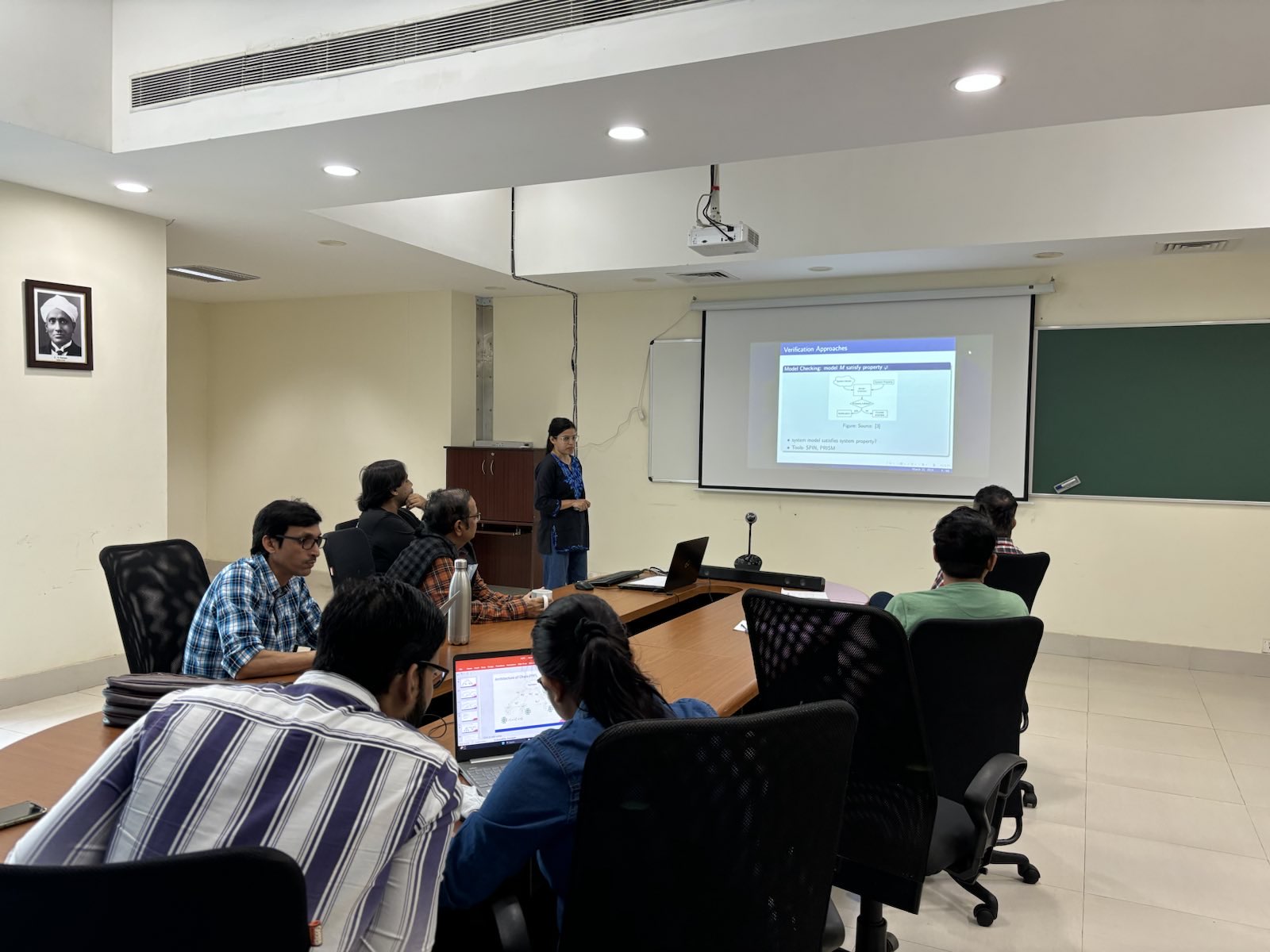
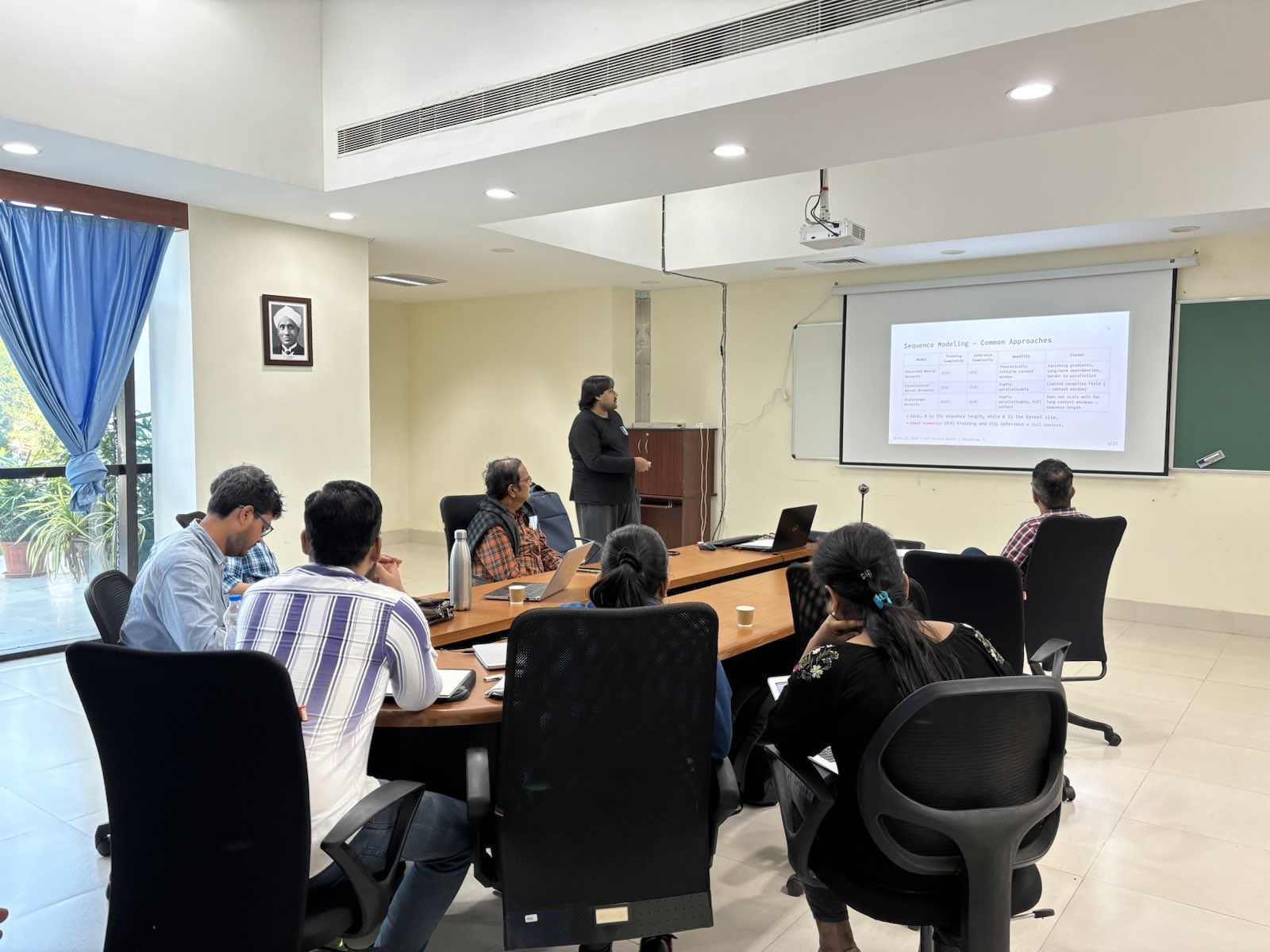
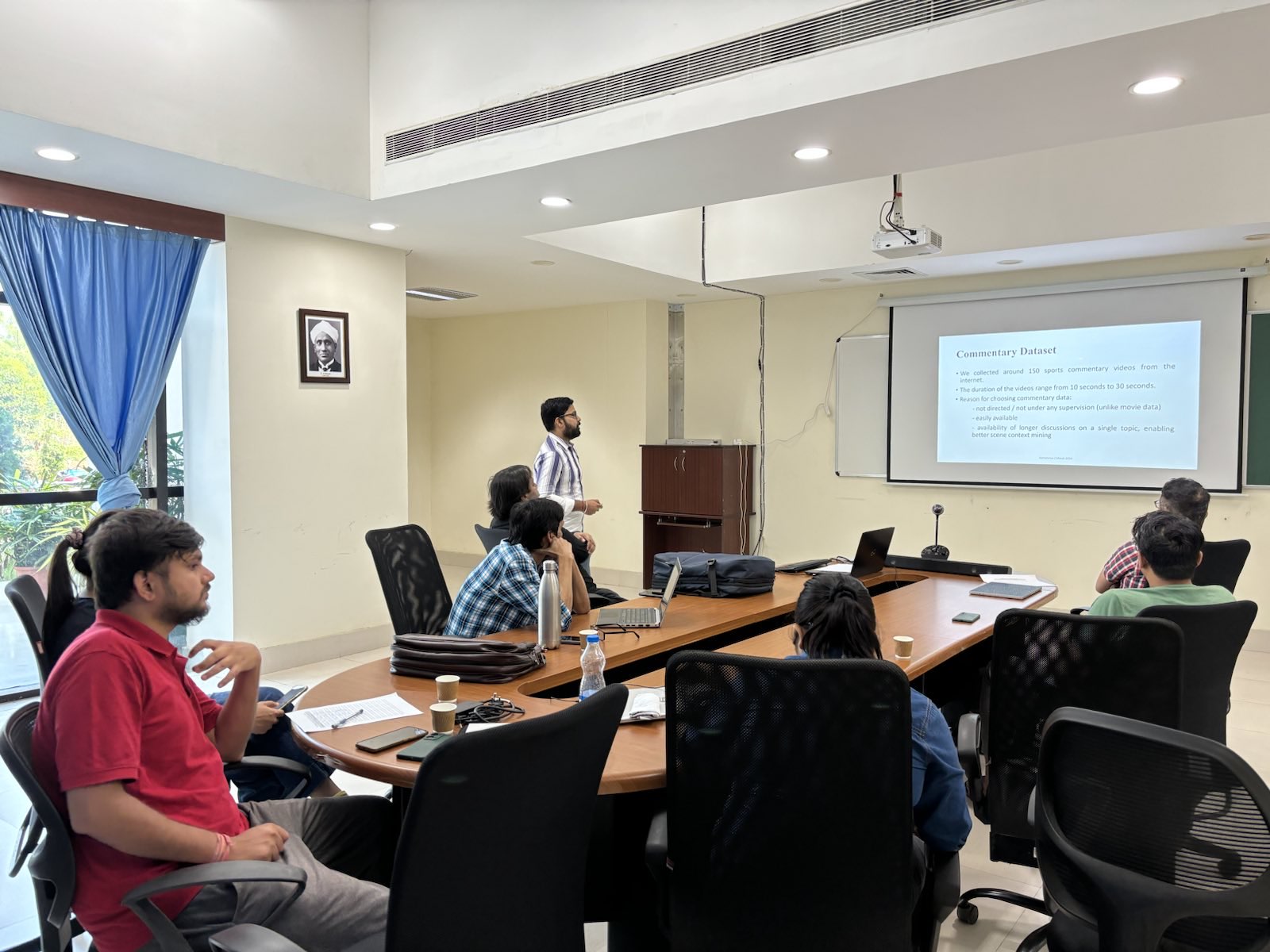
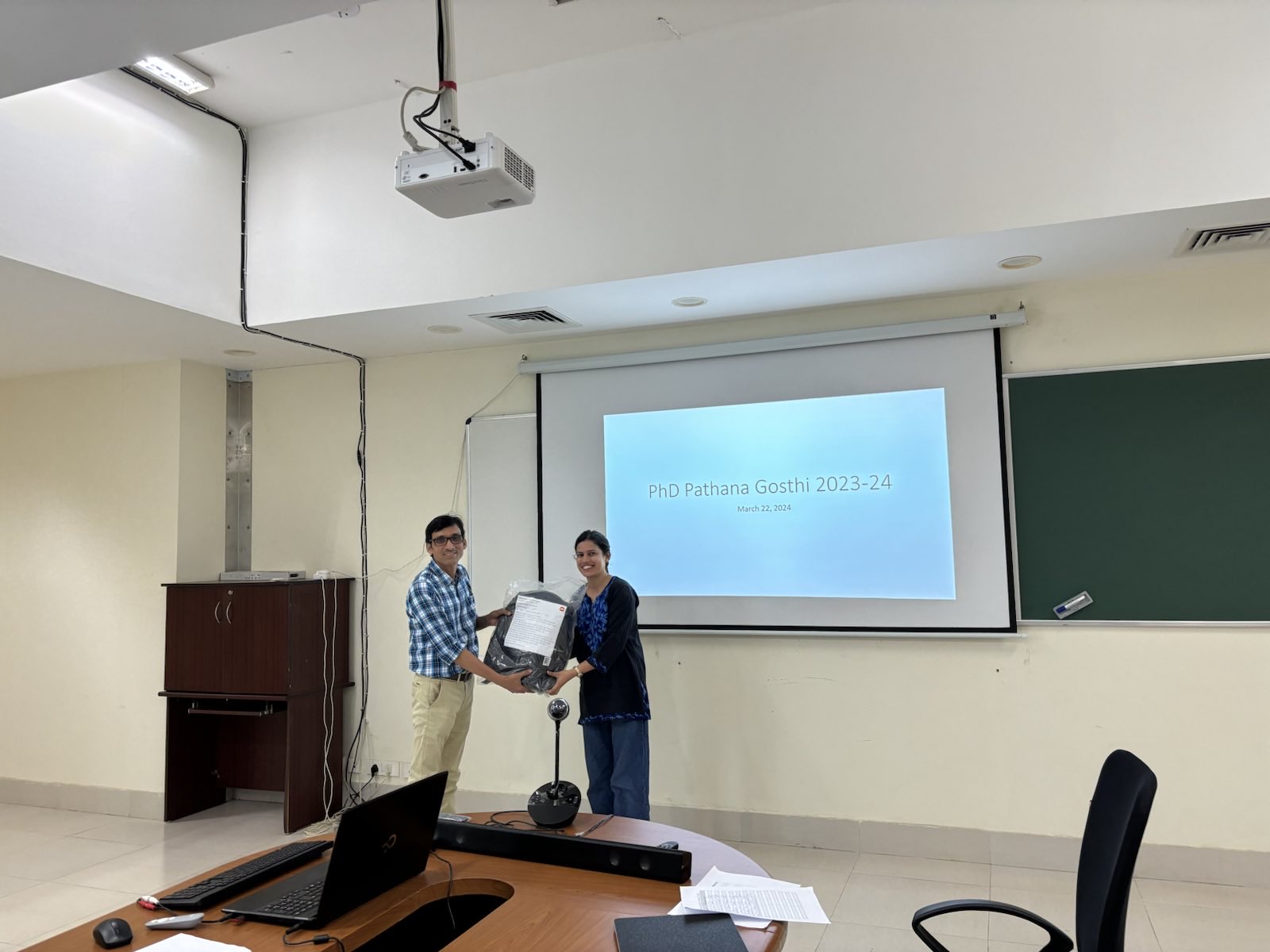
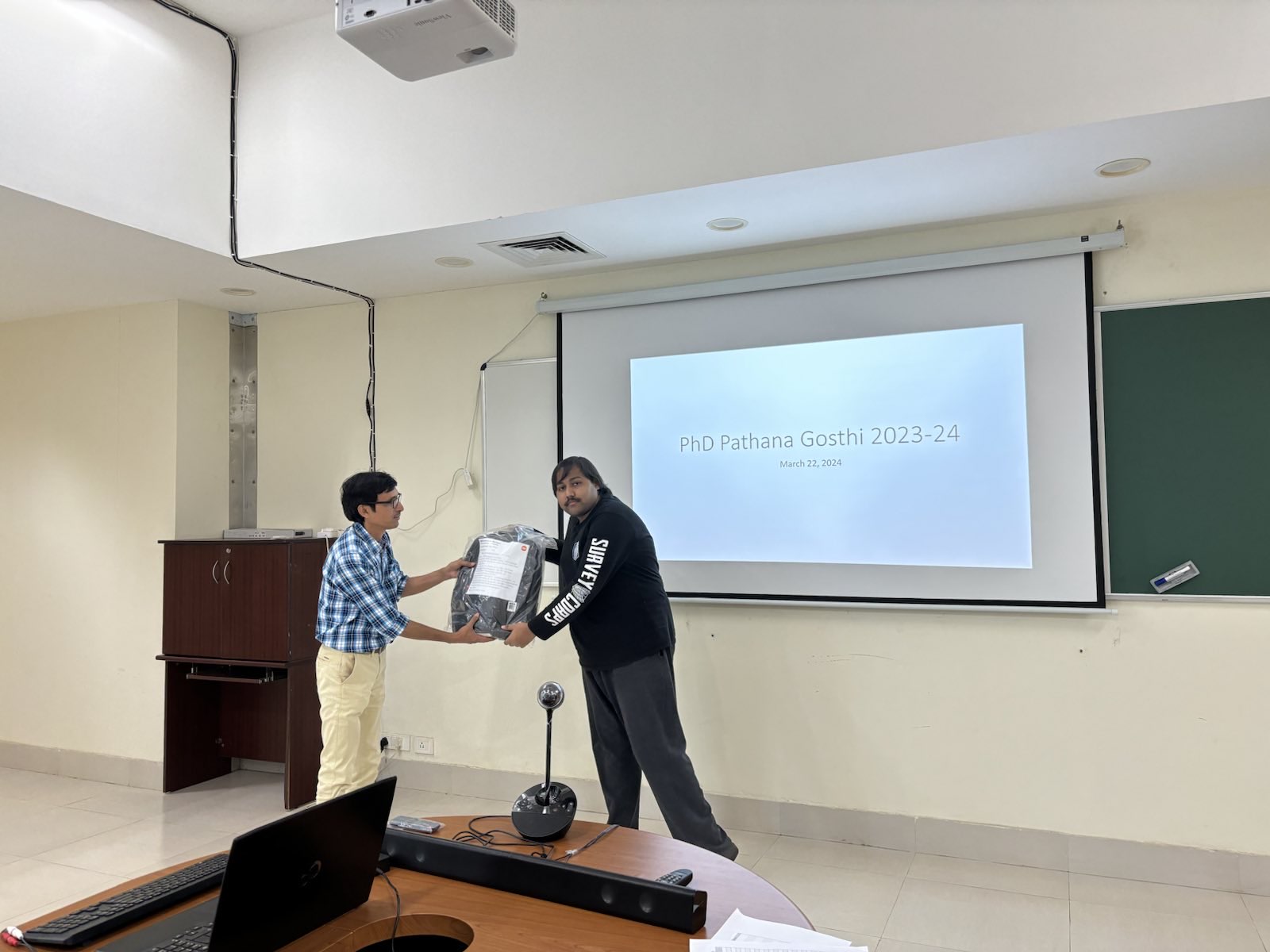
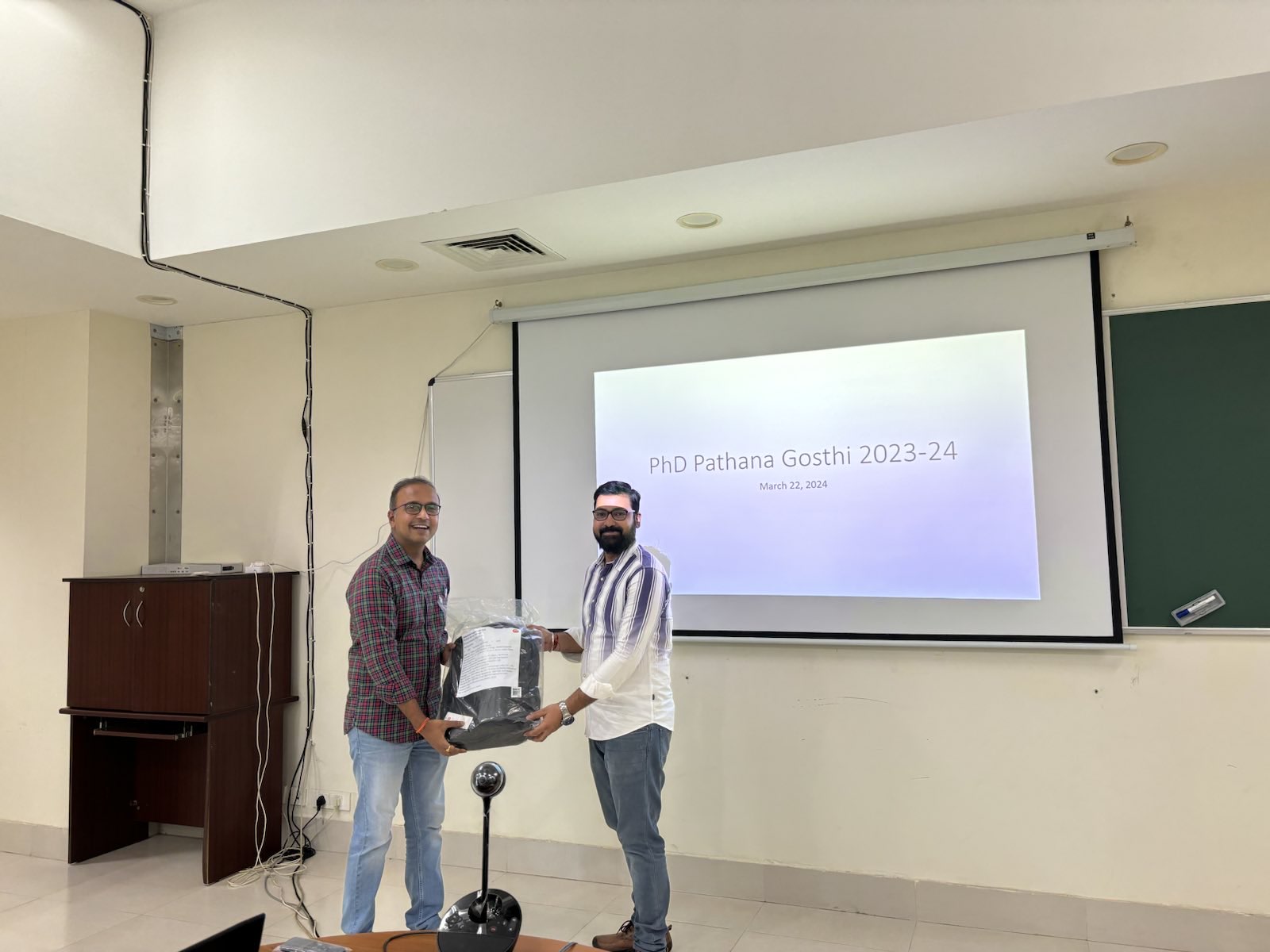
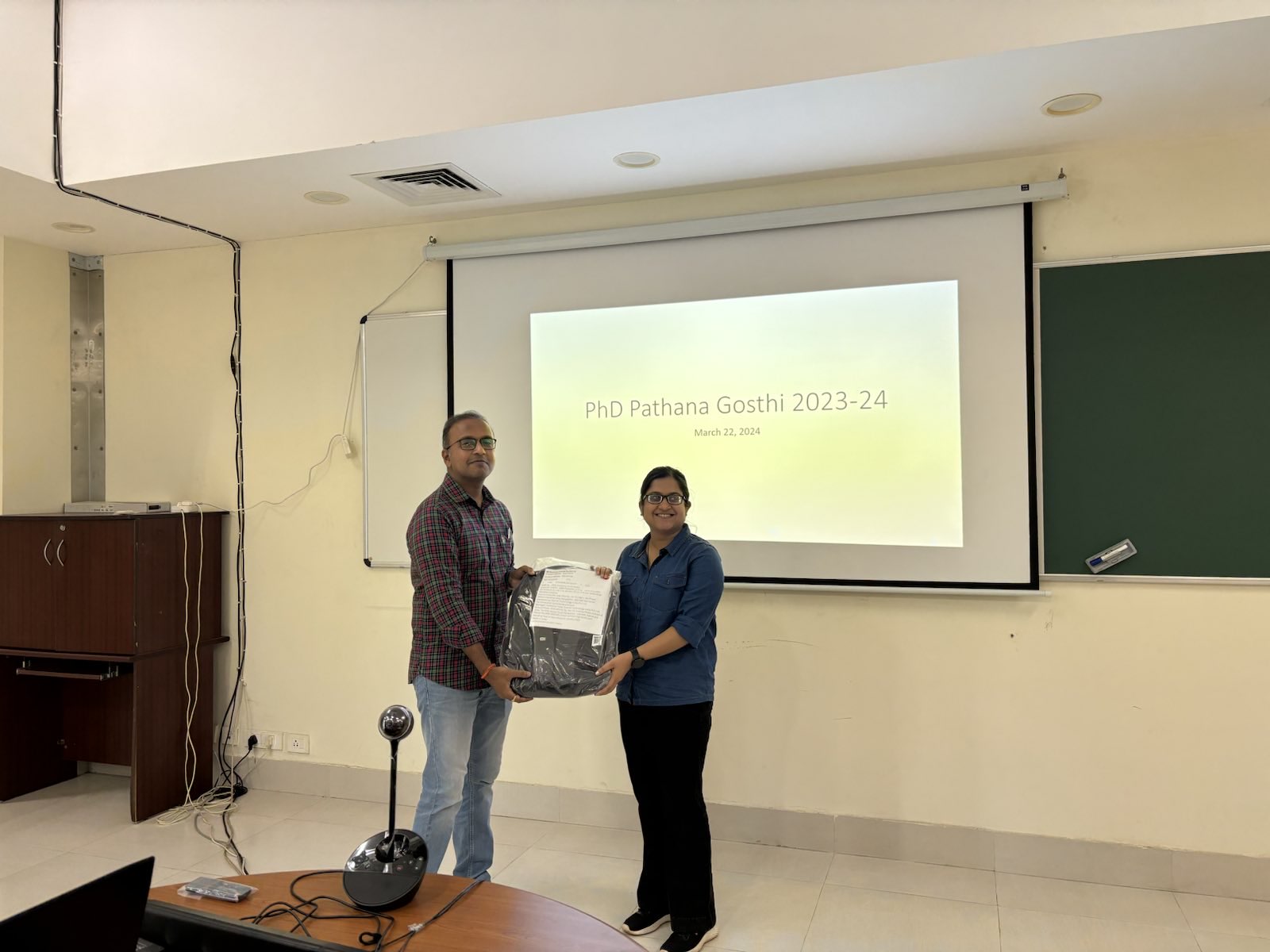
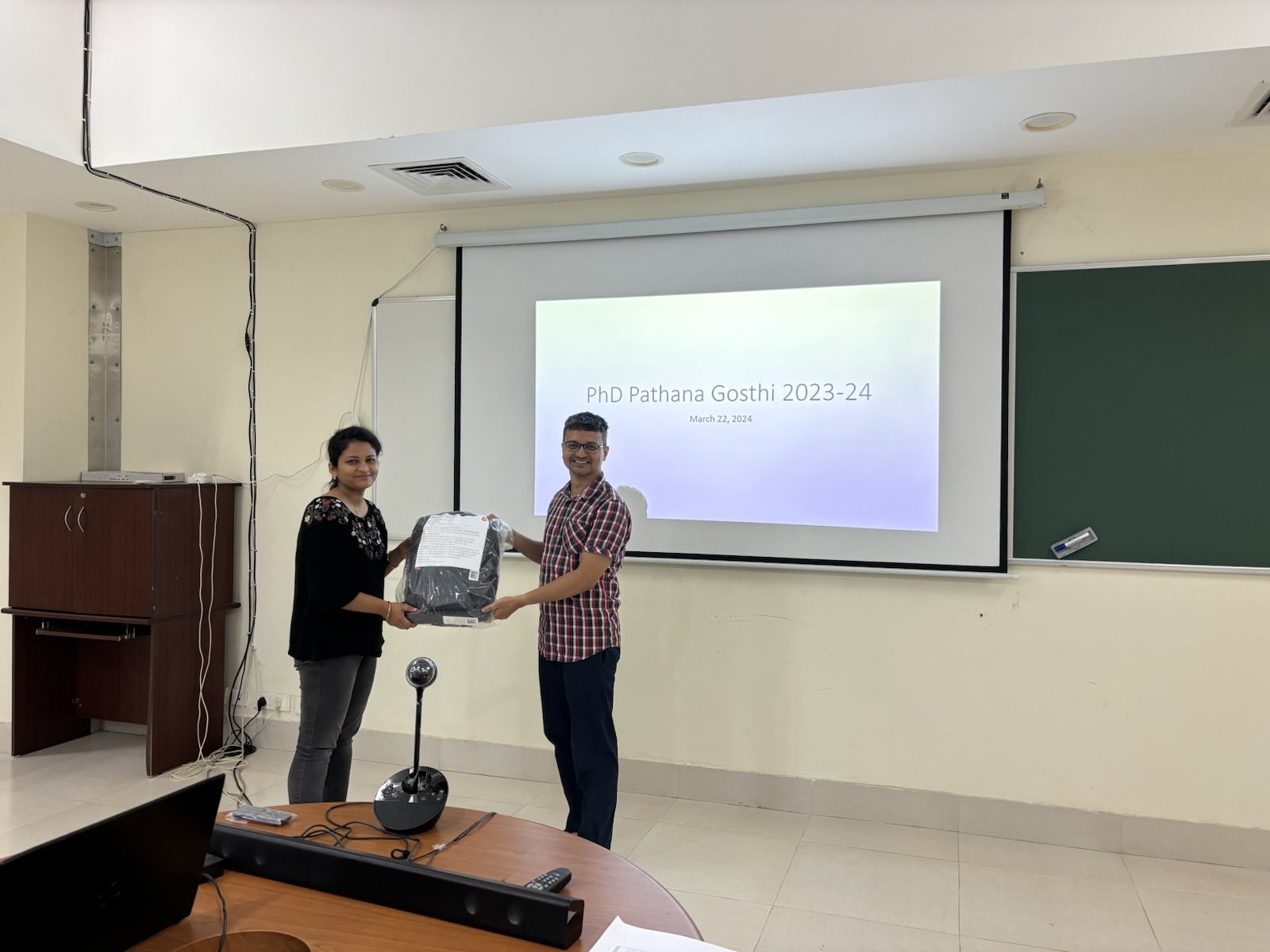
Schedule March 22, 2024
- Saumya Shankar
IIT Bhubaneswar
- Title: Advancements in Runtime Enforcement Frameworks: Finite Memory, Compositional Approaches, and Practical Applications
-
Abstract
In my work, we work on formal runtime enforcement approaches which monitor the execution of a system at runtime and ensure its compliance against a set of formal requirements. An enforcer can be considered as a safety wrapper for the system, (operating next to the execution of untrusted programs), which intervenes when an execution is about to violate the property being enforced. It catches the (untrustworthy) inputs (in the form of a sequence of events) and modifies those into an output sequence that complies with the specified property.
- Jyotirmaya Shivottam
NISER
- Title: Graph Mamba
-
Abstract
In this work, we explore State Space Models (SSMs) to improve long-range performance of Graph Neural Network models on various tasks. We formulate a new approach that incorporates SSMs into the message creation and updation step in Graph Neural Networks, and perform several experiments to verify whether this approach leads to better performance on a set of standard datasets.
- Kamakshya Prasad Nayak
IIT Bhubaneswar
- Title: Gaze based analysis of small conversational groups
-
Abstract
Gaze is critical for applications like human social behaviour analysis, visual navigation, action recognition, human-robot interaction, autism research etc. Gaze target detection or gaze following aims at estimating the person or object at which any subject is looking. Given an input video, the objective is to verify certain hypothesis in movie/series data as well as publicly available video which are natural and not recorded under guidance or supervision. Precisely, we perform the gaze analysis relating to the variation in the number of people in the scene and context under which the discussion is taking place.
- Rojalini Tripathy
IIT Bhubaneswar
- Title: Privacy Preserving Peer-to-Peer Federated Learning
-
Abstract
Federated learning (FL) is an emerging technology that acquires significant attention by the research community due to its manyfold advantages and applications. FL is an area of Machine Learning(ML) that enables multiple data owners to collaboratively train a single model by exchanging model parameters instead of original data. This allows enforcing security and privacy of data as well as provides effective ways of employing AI techniques in different applications. Despite its advantages, FL faces challenges such as dependency on a central server, slow convergence, and impact of message exchanges on system efficiency. In this paper, we are proposing a peer-to-peer federated learning framework using secure multiparty computation. Our proposed framework makes FL not dependent on a central server and provides secure parameter sharing. We have implemented our proposed framework with two different datasets, considering different numbers of clients, and analyzed it. We observe that our framework performs better than existing frameworks.
- Kasturi Routray
IIT Bhubaneswar
- Title: Context-Aware Attribute Based Access Control for Cloud-based SCADA Systems
-
Abstract
Cloud-based SCADA (Supervisory Control and Data Acquisition) systems enable seamless access to internet of things (IoT) operational data for employees at control facilities and operators working on the field for automated control and monitoring of industrial infrastructure. In this work, we introduced a novel approach based on ciphertext policy attribute-based encryption (CP-ABE) to ensure secure and fine-grained access control over data stored in the cloud. Our proposed scheme considers static and dynamic attributes of the users to devise an access policy. Contextual locks are introduced for defining constraints on dynamic attributes. These locks are independent of the user's attribute sets; thus, they don't require decryption keys to be associated with dynamic attributes. This avoids system overhead with frequent changes in contextual parameters. To protect the confidentiality of the access policy, we obfuscate its attributes during the data-sharing process. Moreover, our proposed scheme prevents key escrow attacks on cloud-stored data. Additionally, fog servers are employed to verify the user's contextual attributes and reduce the computational overhead of decryption for end users. Our scheme enhances the security and integrity of remote process control and monitoring in industrial systems while leveraging the benefits of real-time data analysis and decision-making.
Phase 1
Speakers : Rucha Bhalchandra Joshi (NISER), Annada Prasad Behera (NISER), Neha (XIMB)Tentative schedule -
| Date | Time | Speaker | Topic |
|---|---|---|---|
| Mon, June 12 2023 | 8:30am | Rucha | On the Expressive Power of Geometric Graph Neural Networks |
| 10:00am | Dr. Praneeth Netrapali | Towards neural networks robust to distribution shifts | |
| 1:30pm | Neha | Improving Social Network Embedding via New Second Order Continuous Graph Neural Networks | |
| 3:00pm | Monalisha | Masked Auto-Encoders Meet Generative Adversarial Networks and Beyond | |
| 5:30pm | Sujoy | Knowledge-enhanced Black-box Attacks for Recommendations | |
| Tue, June 13 2023 | 8:30am | Pranita | Describing Differences between Text Distributions with Natural Language |
| 10:00am | Niranjan | Symmetric Machine Theory of Mind | |
| 1:30pm | Pradeep | Knowledge-enhanced Black-box Attacks for Recommendations | |
| 3:00pm | Monalisha | Deep Representations for Time-varying Brain Datasets | |
| 5:30pm | Annada | ReLU Fields: The Little Non-linearity That Could | |
| Wed, June 14 2023 | 8:30am | Annada | Dr.Jit A Just-ln-Time Compiler for Differentiable Rendering |
| 10:00am | Niranjan | Differentiable Top-k Classification Learning | |
| 1:30pm | Sujoy | A Large Scale Search Dataset for Unbiased Learning to Rank | |
| 3:00pm | Neha | AdaAX : Explaining Recurrent Neural Networks by Learning Automata with Adaptive States | |
| 5:30pm | Pradeep | Learning to Learn Transferable Attack | |
| Thu, June 15 2023 | 8:30am | Sujoy | Revisiting Injective Attacks on Recommender Systems |
| 10:00am | Pradeep | Deceptive Decision-Making under Uncertainty | |
| 1:30pm | Pranita | Self-Supervised Models of Audio Effectively Explain Human Cortical Responses to Speech | |
| 3:00pm | Niranjan | Be Like Water: Adaptive Floating Point for Machine Learning | |
| Fri, June 16 2023 | 8:30am | Annada | Shape, Light, and Material Decomposition from Images using Monte Carlo Rendering and Denoising |
| 10:00am | Rucha | Rethinking Graph Lottery Tickets: Graph Sparsity Matters | |
| 1:30pm | Monalisha | Do We Really Need Complicated Model Architectures for Temporal Networks? | |
| 3:00pm | Prof. Venkatesh Kamat | Some myths and facts about PhD Life and the Future | |
| Sat, June 17 2023 | 8:30am | Rucha | Graph Neural Networks can Recover the Hidden Features Solely from the Graph Structure |
| 10:00am | Prof. Vasudeva Siruguri | Technological advances and Ethical Impacts | |
| 1:30pm | Neha | Towards Understanding Ensemble, Knowledge Distillation and Self Distillation in Deep Learning | |
| 3:00pm | Pranita | A Deep Leaming Approach for the Segmentation of Electroencephalography Data in Eye Tracking Applications |
Apply Here: Google Form
What is expected of you?
At PhD Pathana Gosthi, we expect selected PhD students to present recent papers from top conferences such as AAAI 2023, CVPR 2023, ICLR 2023, ICML 2022, KDD 2022, NeurIPS 2022, and SIGGRAPH 2022. You will have the opportunity to suggest three papers of your choice while applying, and may be requested to present alternate papers if needed. The event aims to foster learning, discussion, and collaboration among PhD students, providing a platform for you to showcase your research and engage in meaningful discussions with fellow peers.
How will you be selected?
To participate in PhD Pathana Gosthi, PhD students need to submit their CV and Motivation Letter by filling up this form. Our selection process will involve shortlisting candidates based on their CV and Motivation Letter, and the chosen participants will be notified via email.
What will be provided?
PhD Pathana Gosthi provides selected PhD students with accommodation, meals, travel expenses, and a comprehensive kit and a certificate of participation. These provisions aim to ensure a comfortable and engaging experience, allowing participants to fully participate in the event and showcase their research.
This website will serve as a hub for information and updates about the event, as well as a platform for students to submit their application materials. Join us for this enriching experience as we delve into the cutting-edge world of Machine Learning and explore the latest advancements in the field!Resources
Important Dates
| Event | Date |
|---|---|
Team
- Annada Prasad Behera
- Aritra Mukhopadhyay
- Rucha Bhalchandra Joshi
- Shradhanjali Sahoo
- Subhankar Mishra
How to reach NISER?
NISER is easily accessible from Khurda Junction railway station, Bhubaneswar bus to Jatni, or Biju Patnaik International Airport via taxi or public transport.
Address:Subhankar Mishra's Lab, School of Computer Sciences, NISER 752050.
Google Maps: SM Lab
Email : ml-reading-group@niser.ac.in